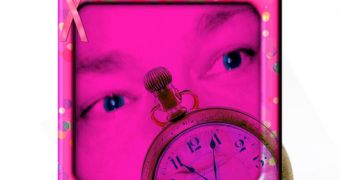A new study that was presented today at the Radiological Society of North America (RSNA), concluded that women who have an annual mammogram between the ages of 40 and 50, significantly reduce the risk of mastectomy after breast cancer.
Lead author Nicholas M. Perry, M.B.B.S., F.R.C.S., F.R.C.R., director of The London Breast Institute at The Princess Grace Hospital in London, and fellow researchers, analyzed the benefits of breast cancer scans for women between 40 and 50 years old, as well as the frequency of mammography and the kind of treatment after breast cancer diagnosis.
The researchers reviewed all clinical data available on women aged 40 to 50, that were diagnosed with breast cancer and followed treatment at The London Breast Institute, and found that between 2003 and 2009, 971 women had been diagnosed with breast cancer.
When the diagnosis was pronounced, 393 (40%) of the women were under 50, and 156 of them completed treatment at the center.
114, or 73% of the treated women had no prior mammograms, while 42 women had been previously been screen with mammography.
Out of them, 29 had at least one mammogram over the previous two years, and of those, 16 women had a mammogram one year prior.
The results of the review showed that mastectomy was a necessary treatment for 3 (19%) of the 16 women scanned the prior year, compared to 64 (46%) of the other 140 women.
Dr Perry said that they “reviewed the records of the women needing mastectomy to determine whether or not they had undergone mammography the previous year.
“We were surprised at the degree of benefit obtained from yearly screening in this age group.
“The results of this study support the importance of regular screening in the 40 to 50 age group,” Dr Perry, added.
“Women in this age group who had undergone mammography the previous year had a mastectomy rate of less than half that of the others.”
In the United States, an estimated 207,090 new cases of invasive breast cancer will be diagnosed in 2010.
For now, the American Cancer Society recommends yearly mammography scanning for women at and over age 40 in the US.
Last year, the US Preventive Services Task Force recommended changing the guidelines, so that at age 50, the screening would become biennial.
In the UK, there are no routine screening guidelines for women under 50.
“Regular screening is already proven to lower the chance of women dying from breast cancer,” said Dr. Perry.
“The results of our study support the importance of regular screening in the under-50 age group and confirm that annual mammography improves the chances of breast conservation should breast cancer develop.”

 14 DAY TRIAL //
14 DAY TRIAL //